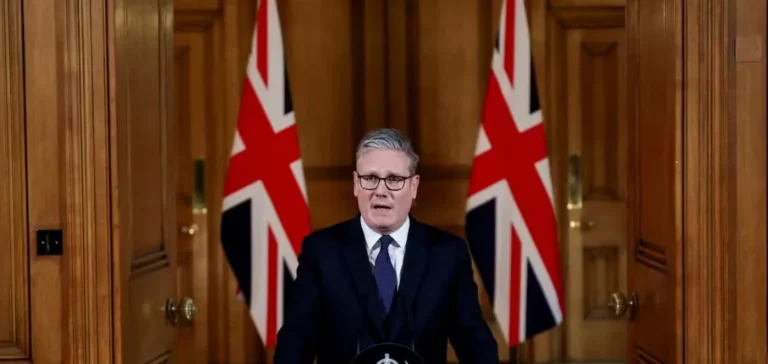The United Kingdom government has unveiled a new roadmap to meet its long-term climate targets, reaffirming its commitment to fully decarbonise the electricity sector by 2030. The plan, published by the Department for Energy Security and Net Zero, covers the period 2023–2037 and includes a carbon budget to cap greenhouse gas emissions over five-year cycles.
Decarbonisation target maintained despite criticism
This strategy is based on a rapid increase in renewable generation capacity, including a fourfold expansion of offshore wind, a tripling of solar, and a doubling of onshore wind. The government, led by Prime Minister Keir Starmer, continues to defend this programme as a lever for economic growth, energy security, and household bill reductions.
However, the direction has sparked growing criticism within the political class. Several opposition parties and think tanks are calling for a revision of the current strategy. The Tony Blair Institute for Global Change has notably recommended reforms to pricing mechanisms and the energy production contracts model to better distribute risk between consumers and producers.
High costs and private sector demands
From the business community, while the long-term vision is welcomed, concerns remain over electricity prices. The Confederation of British Industry has called for lower policy-related charges on corporate energy bills and targeted support to strengthen industrial competitiveness.
Nigel Topping, Chair of the independent Climate Change Committee, stressed the importance of reducing electricity prices to ensure the rollout of heat pumps and other solutions planned in the strategy. He highlighted the need for a significant acceleration in deployment to meet set targets.
Falling emissions and renewable energy gains
Provisional data show a 4% decline in UK emissions in 2024, reaching 371 million tonnes of CO₂ equivalent, compared with 385 million the previous year. The decrease is mainly due to reduced coal and gas use, particularly in the industrial and power generation sectors.
The closure of the last coal-fired power station in September 2024, increased imports, and higher renewable generation led to a 15% drop in electricity sector emissions. The year 2024 also marked a symbolic shift: renewables generated 51.3% of the country’s electricity, surpassing fossil fuels for the first time.






















